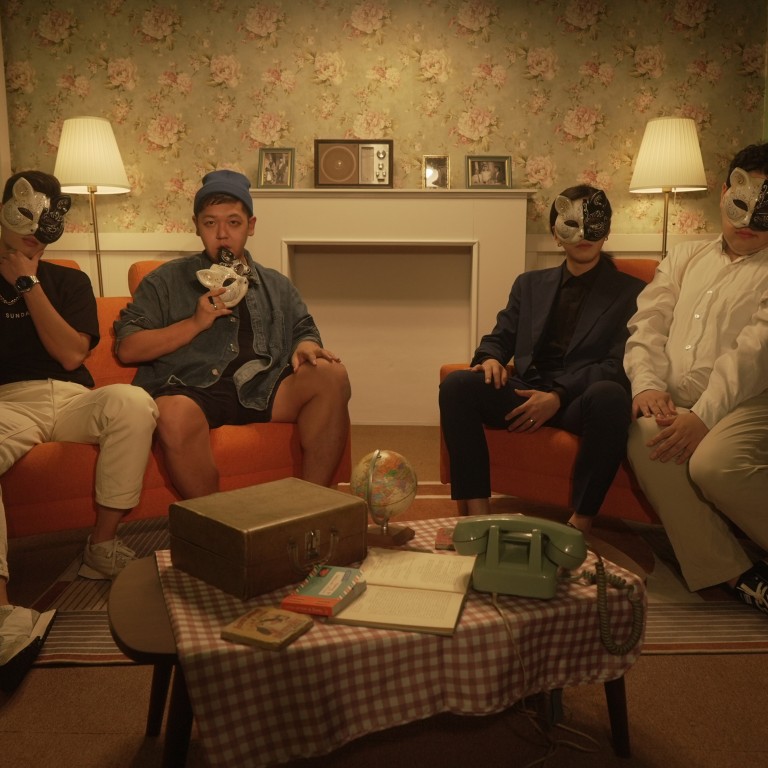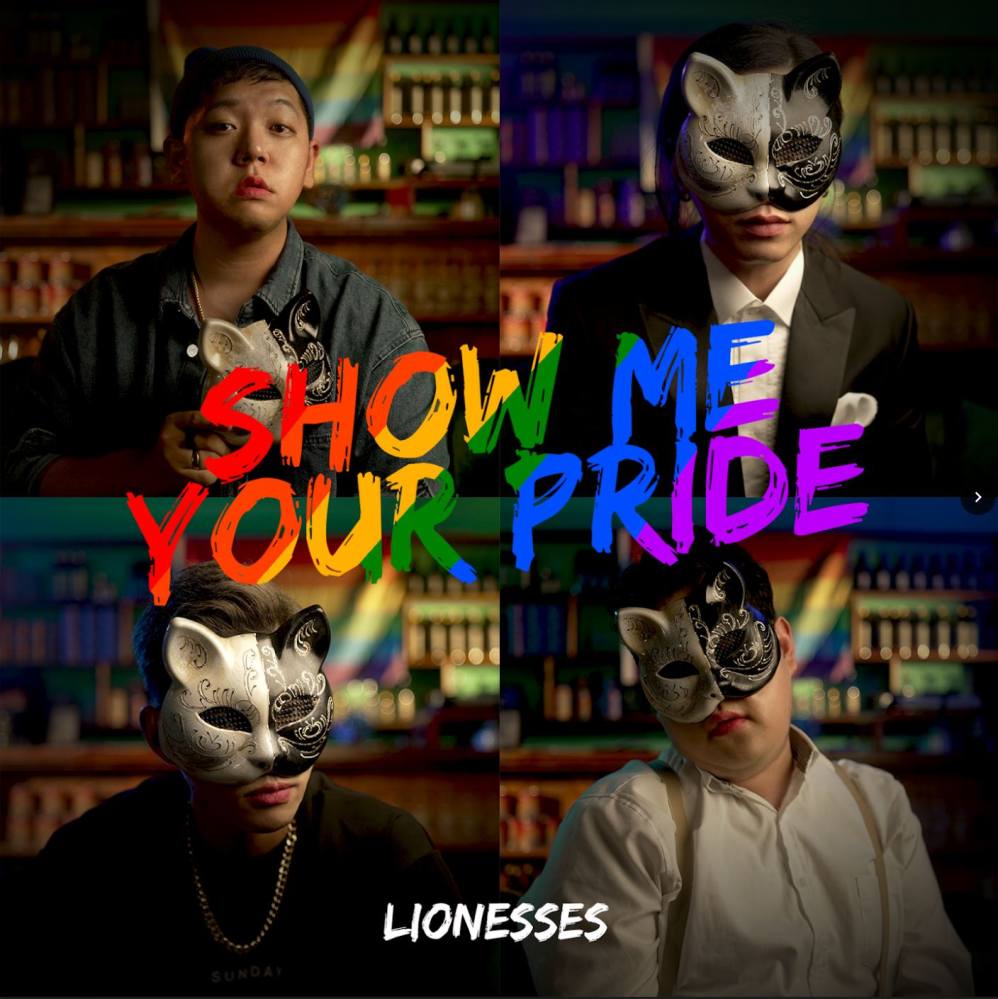
Lionesses, who say they’re the ‘first openly LGBTQ’ K-pop boy band, release their debut single, Show Me Your Pride
- The new group’s debut track Show Me Your Pride has lyrics about coming out, facing homophobia and hatred, and LGBT life
- There are openly LGBT solo artists active in Korean music, such as Holland and MRSHLL, and performers who have left K-pop groups have subsequently come out
A new K-pop group say they’re making history: four-member Lionesses claim to be the first openly LGBT K-pop boy band.
On November 1 the quartet shared their first song, Show Me Your Pride, an inspirational track that explores the struggles of LGBT life, coming out, facing hatred and homophobia, and more.
A music video for Show Me Your Pride depicts the members of Lionesses masked until the end, when one removes their mask to reveal his identity.
“Let me see your pride. Because you’re the one who shines like stars,” they declare in the description of the music video.
The song was produced with support from the South Korean activist organisation Beyond the Rainbow Foundation’s Ivan City Queer Cultural Fund, which aims to support LGBT representation in South Korean culture.
South Korea’s LGBT community continues to struggle in a country where anti-discrimination laws protecting queer persons’ rights are frequently discussed but never implemented by politicians, and where there is intense social stigma attached to being LGBT.
Malaysian transgender tycoon Nur Sajat ‘safe, happy, free’ in Australia

Several openly LGBT artists are active in Korean music, including K-pop singer Holland and R&B soloist MRSHLL, and in recent years several former members of K-pop groups have come out as LGBT, including Jiae of Wa$$up, who came out as bisexual, and Xeno-T and Topp Dogg member Hansol, who came out as asexual. In the past, transgender icon Harisu and transgender girl group Lady have also been active.
Many K-pop artists publicly support LGBT rights and there have been numerous instances of high-profile acts releasing music videos featuring queer romances.
While LGBT representation is growing, Korea’s entertainment industry has been criticised for “queerbaiting” – representing non-openly LGBT talent in queer-coded ways to engage with and attract fans.
